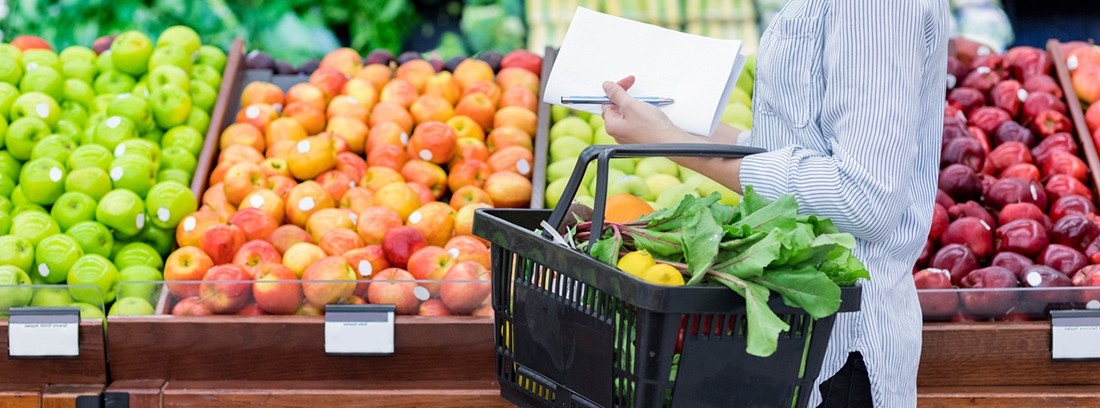Food consumption in lactation

Feeding during lactation should be balanced, varied and sufficient to meet nutritional requirements.
It is recommended to divide the food into 4-5 daily intakes to ensure the demands and choose foods with higher nutritional quality (high in vitamins, minerals and low in energy or calories).
Make a full breakfast. For this you need a portion of dairy (yogurt or cheese or milk), a farinaceous (bread or breakfast cereals or simple cookies) and a fruit (whole).
Make a light snack in the middle of the morning (toast with fresh cheese or cold turkey, yogurt with a handful of nuts, yogurt and a piece of fruit).
A daily consumption of dairy products (yogurt, milk, cheese). It is advisable 3-4 daily servings to achieve a sufficient intake of calcium and phosphorus. In addition, these foods also contain vitamin D, lactose and proteins that promote the absorption of calcium.
A portion of dairy is equivalent to: 1 glass of milk (250cc) or 2 yogurts or 40 gr of aged cheese or 80-100gr of fresh cheese.
Consume farinaceous meals daily and choose the whole wheat option (bread, rice, potatoes, pasta, legumes) to increase the amount of fiber.
Consume a minimum of 5 servings of fruit and vegetables a day, in order to ensure the demands of fiber, minerals and vitamins. We recommend 3 servings of fruits and 2-4 of vegetables or salads (raw and cooked as a main dish or side).
A serving of fruit is equivalent to: a medium piece (120-200gr of fruit) and a serving of vegetables is equivalent to: a plate (200gr).
Introduce proteins of high biological value in the daily diet (fish, meat or eggs). In addition, these proteins are rich sources of heme iron, which we absorb better than non-heme iron, typical of vegetables. 2 servings daily is recommended.
A serving of meat, fish and egg is equivalent to: meat (80-100gr), white and blue fish (150-200gr), chicken (100gr), egg (2 small size units).
Drink between 2 or 3 liters of water daily, as it is the main nutrient in breast milk. Fruits, vegetables, vegetables, soups and purees also contain water and contribute to water intake.
The abuse of strong seasonings or certain foods (cabbage, asparagus, garlic, onion) should be avoided. These can transfer the flavor to milk.
Eliminate alcohol consumption because it inhibits the absorption of nutrients and passes into breast milk.
Avoid consuming exciting or stimulating beverages (coffee, tea, caffeinated soft drinks, ..), as it passes into milk and produces irritability.
Control stress in the mother. A high level can reduce the volume of milk.
(Updated at Apr 15 / 2024)